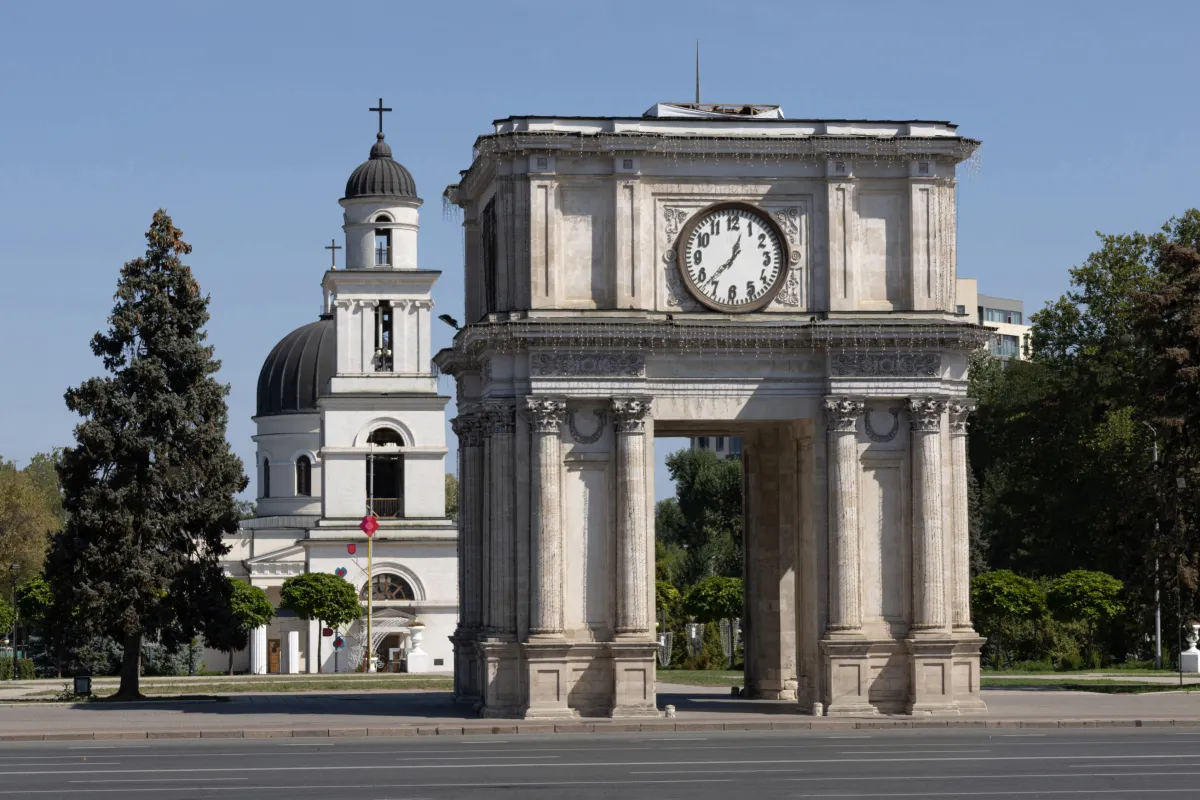
Countries
Employer of Record in Moldova | Culture
We help you remain competitive for top talent and grow your global team quickly — no entity required

Moldova Fast Facts
Safeguard Editorial Team
Download our guide to hiring in Moldova.
Culture and Holidays in Moldova
Languages
Moldova’s workplace environment is multilingual, with Romanian and Russian used across industries. Romanian is the official language and is widely spoken, while Russian holds significant historical and cultural importance and is still widely used, especially in certain regions.
In corporate sectors like IT and finance, Romanian is the primary language for communication, documentation, and client interactions. English is also used, particularly in multinational companies.
In government offices and public sector organizations, both Romanian and Russian are used for internal communication and documentation, depending on the region and demographic.
The manufacturing and retail sectors rely on local languages for daily operations. Factories, warehouses, and construction sites primarily use Romanian or Russian, while management-level communication may be in English.
In customer service, language use depends on clientele. Romanian and Russian are common for domestic customer support, while English is used for international clients.
Workplace norms and professional etiquette
Moldova’s workplace culture blends a respect for structure and professionalism with a strong emphasis on trust and open communication. Modern organizations in Moldova value approachability, teamwork, and flexibility, especially in dynamic sectors such as technology and agriculture.
Workplace hierarchy and authority
While companies maintain clear reporting lines, employees are encouraged to contribute ideas and collaborate across teams. Decision-making may be consensus-driven in progressive workplaces, though senior leadership retains strategic control.
Email and phone etiquette
Business communication is typically professional and courteous. Emails begin with polite greetings and use formal language, while phone calls are respectful and often include brief pleasantries before addressing business topics.
Meeting etiquette and punctuality
Meetings are expected to begin on time, with a structured agenda. Punctuality is valued. Informal conversation at the start is common and helps foster rapport. Contributions from all attendees are encouraged.
Professional dress code
Traditional industries such as banking may require business formal attire. In contrast, start-ups and tech firms often adopt business casual or smart casual dress codes, especially in hybrid and remote environments.
National holidays
Employees are entitled to several national holidays.
- Jan. 1: New Year’s Day
- Mar. 8: International Women’s Day
- Easter Sunday
- Easter Monday
- May 1: Labour Day
- May 9: Victory Day
- Aug. 27: Independence Day
- Aug. 31: Language Day
- Dec. 25: Christmas Day
Employees may also receive local or sector-specific holidays depending on their region or industry. Bridging days are sometimes granted when holidays fall near weekends.
Employees who work on public holidays are entitled to compensatory time off or additional pay, as regulated by Moldova’s labour law and collective agreements. Standard rates apply on make-up days unless stated otherwise in employment terms.
Disclaimer: The information provided is for informational purposes only and does not constitute legal or professional advice. Safeguard Global disclaims any liability arising from reliance on this information. Certain content may be sourced from third parties and remains their intellectual property; all other content is owned by Safeguard Global and protected by applicable intellectual property laws. You are encouraged to seek professional or legal advice to address any issues, questions or matters arising from the information contained herein.

Contact Us
Book a demo today
We’d love to learn more about your needs and show you how we can help. Submit the form and we’ll be in touch to schedule a personalized demonstration of our platform and services.
Schedule an appointment
Fill out the form to speak to a rep about how we can help your organization.



















